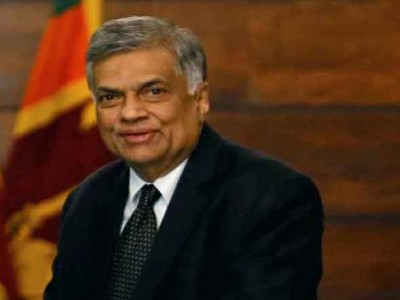(COLOMBO, LANKAPUVATH) –The World Bank Vice President for the South Asia Region, Hartwig Schafer arrived today on his first visit to Sri Lanka to gain a better understanding of the country’s development priorities and how the Bank can continue to support its critical reform agenda.
“Sri Lanka has made good progress in reducing poverty and ranks the highest in South Asia in terms of human capital development” said Schafer.
“To continue its journey towards a high middle-income country and create more quality jobs for its people, Sri Lanka needs to continue focusing on better fiscal health, boosting its competitiveness as a tourism, logistics and IT hub and managing climate change risks. The World Bank will continue to provide its best expertise to support Sri Lanka’s future growth.”
During his three-day visit, Schafer will meet President Maithripala Sirisena, Prime Minister, Ranil Wickremesinghe and senior government officials including the Minister of Finance, Mangala Samaraweera, State Minister of Finance, Eran Wickramaratne the Mayor of Colombo, Rosy Senanayake and the Governor of the Central Bank of Sri Lanka, Dr. Indrajit Coomaraswamy.
Schafer will hold discussions on Sri Lanka’s low female labor force participation, visit project sites to meet communities engaged in development work and launch the World Bank’s new Sri Lanka Development Update. He will also meet with leading representatives of the private sector and the civil society.
Before joining the South Asia Region, Schafer served as the Vice President for Global Themes and as Vice President for Operations Policy and Country Services. He led several key reforms, including the rollout of the World Bank’s new policies on procurement, environmental and social safeguards, and innovation of the Bank’s lending and knowledge instruments. Previously, Schafer served as the World Bank’s Country Director for Djibouti, Egypt, and Yemen.
IBRD and IDA portfolio commitments currently total US$ 1728.5 million (as of January 2019) with 14 operations under implementation. Currently, nearly 60 percent of commitments comprised lending in the sustainable development cluster (urban, climate resilience, agriculture, environment and water) and another 36 percent in human development (education, health and social protection). Sri Lanka graduated from IDA at the end of IDA17 and currently receives transitional financing from IDA18 (FY18-20) amounting to US$407 million.




